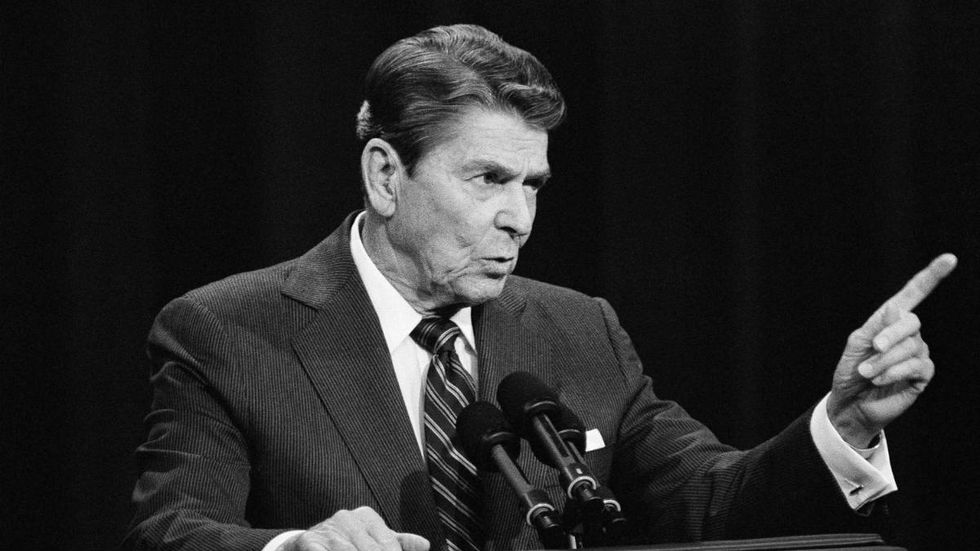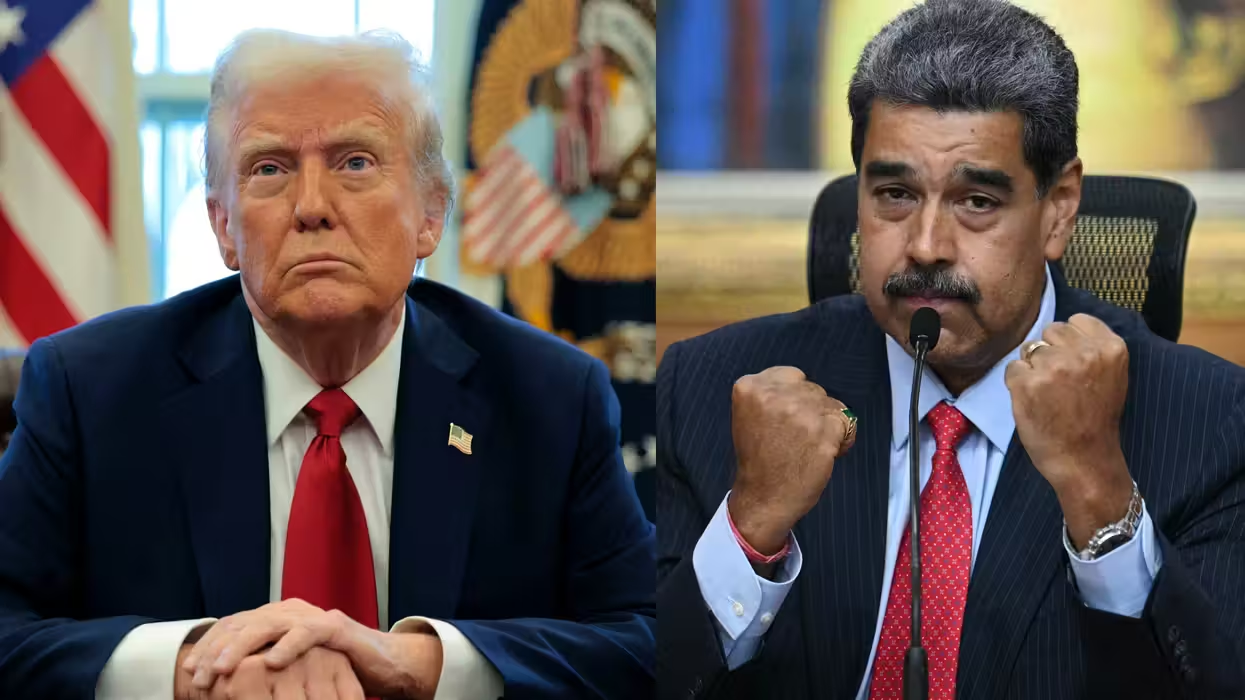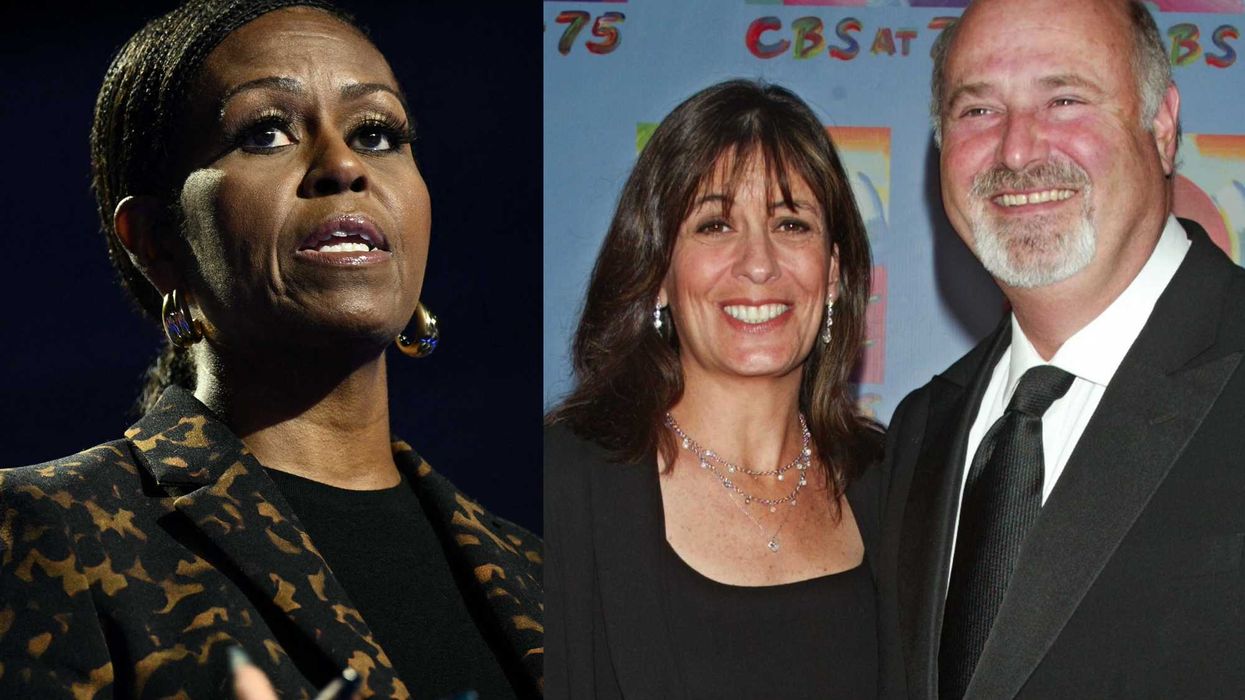
© 2025 Blaze Media LLC. All rights reserved.
President Ronald Reagan strode in to his first press conference a mere five days after being sworn in as president. And right on cue, ABC’s Sam Donaldson, who would make his bones as a Reagan press adversary, asked this question:
“Mr. President, what do you see as the long-range intentions of the Soviet Union? Do you think, for instance, the Kremlin is bent on world domination that might lead to a continuation of the cold war, or do you think that under other circumstances detente is possible?”
Without missing a beat, the new President — a staunch critic of years of “detente” with the Soviets that he saw as a long-running sham — said this (emphasis added):
Well, so far detente's been a one-way street that the Soviet Union has used to pursue its own aims. I don't have to think of an answer as to what I think their intentions are; they have repeated it. I know of no leader of the Soviet Union since the revolution, and including the present leadership, that has not more than once repeated in the various Communist congresses they hold their determination that their goal must be the promotion of world revolution and a one-world Socialist or Communist state, whichever word you want to use.
Now, as long as they do that and as long as they, at the same time, have openly and publicly declared that the only morality they recognize is what will further their cause, meaning they reserve unto themselves the right to commit any crime, to lie, to cheat, in order to attain that, and that is moral, not immoral, and we operate on a different set of standards, I think when you do business with them, even at a detente, you keep that in mind.
Suffice to say, the assembled White House press corps was stunned. Reagan biographer Steven F. Hayward recalls: “There was an audible gasp among the press corps in the briefing room. Some of Reagan’s own aides, cowering in the corners of the room, blanched. This was not the way world leaders talked about other nations.”
So it wasn’t — which was exactly what Reagan saw as part of the problem in dealing with the Soviets. Hayward writes that Reagan was determined to readjust American relations with the Communist Soviet Union and that he would “start by saying no and increasing Cold War tensions to crystallize the fundamental moral problem at the root of the conflict.” Reagan did this in several ways — ramping up the defense budget and proposing the Strategic Defense Initiative that would shoot down hostile missiles were only two. But the use of language — blunt, plain-speaking English — was a tool as well. In March 1983, Reagan would famously address the National Association of Evangelicals in Orlando, Florida, where he slammed the Soviets as follows (emphasis added):
So, I urge you to speak out against those who would place the United States in a position of military and moral inferiority. … So, in your discussions of the nuclear freeze proposals, I urge you to beware the temptation of pride — the temptation of blithely declaring yourselves above it all and label both sides equally at fault, to ignore the facts of history and the aggressive impulses of an evil empire, to simply call the arms race a giant misunderstanding and thereby remove yourself from the struggle between right and wrong and good and evil.
The “Evil Empire” label, of course, was borrowed from the Star Wars movies. Again, this from biographer Hayward:
The speech provoked outrage and contempt among liberals, who never seemed to notice or object to the much more extreme language the Soviets routinely used to describe the United States in official pronouncements. Historian Henry Steele Commager said, “It was the worst presidential speech in American history, and I’ve seen them all.” The New Republic huffed that “the speech left friends and foes around the world with the impression that the President of the United States was contemplating holy war.”
A New York Times columnist sputtered that Reagan’s words were “outrageous” and “primitive.” And so it went. The Reagan idea of the Strategic Defense Initiative drove the critics even further into a frenzy, with the New York Times deriding it as a “pipe dream” and the Chicago Sun-Times labeling SDI as “an appalling disservice.”
Eventually, of course, as Margaret Thatcher would say at Reagan’s funeral, the president won the decades-old Cold War “without firing a shot.”
All of this comes to mind in the wake of President Trump’s blunt words to North Korea’s rogue communist tyrant. And with all the predictability of the sun rising in the east, liberals and the media, just as they were with Reagan’s words, were appalled. Here’s the New York Times:
In chilling language that evoked the horror of a nuclear exchange, Mr. Trump sought to deter North Korea from any actions that would put Americans at risk. But it was not clear what specifically would cross his line. Administration officials have said that a pre-emptive military strike, while a last resort, is among the options they have made available to the president.
“North Korea best not make any more threats to the United States,” Mr. Trump told reporters at his golf club in Bedminster, N.J., where he is spending much of the month on a working vacation. “They will be met with fire and fury like the world has never seen.”
Referring to North Korea’s volatile leader, Kim Jong-un, Mr. Trump said, “He has been very threatening beyond a normal state, and as I said, they will be met with fire and fury, and frankly power the likes of which this world has never seen before.”
And that “chilling” story was a “news” story — not an editorial. Here’s an excerpt from the Times editorial on the subject:
On some emotional level, one might be able to see why Donald Trump threatened to unleash “fire and fury” against North Korea if it endangered the United States. The North’s nuclear program is a growing menace, its warmongering tirades are unquestionably unnerving, and peaceful solutions to the threat it poses have been maddeningly elusive over many years and many American administrations.
But Mr. Trump is president of the United States, and if prudent, disciplined leadership was ever required, it is now. Rhetorically stomping his feet, as he did on Tuesday, is not just irresponsible; it is dangerous. He is no longer a businessman trying to browbeat someone into a deal. He commands the most powerful nuclear and conventional arsenal in the world, and any miscalculation could be catastrophic.
Even if Mr. Trump’s provocative remarks were part of a deliberate strategy for ratcheting up pressure on North Korea — and on China, which as the North’s main food and fuel supplier has more influence on it than any other nation — they would be at odds with the measured approach of his predecessors. This is a president with no prior government or military experience who has shown no clear grasp of complex strategic issues.
As The Times reported Wednesday, his inflammatory words were entirely improvised and took his closest associates by surprise. Intentionally or not, they echoed President Harry Truman’s 1945 pledge to inflict a “rain of ruin from the air” if Japan did not surrender after the first atomic bomb was dropped at Hiroshima, which made them seem even more ominous.
Memo to the Times: When Japan did not surrender, Truman did indeed inflict a “rain of fire from the air” — and WWII came to an end as Japan surrendered.
Is North Korea in 2017 the Soviet Union in 1981 or 1983? No. Is President Donald Trump President Ronald Reagan? No, of course not.
But what is unchanged — completely unchanged — is human nature. Human beings can be good — but they are, in some cases, also capable of unmitigated evil. The question always is: How does the rest of a world filled with imperfect yet well-intentioned human beings deal with evil? If any lesson is to be learned yet again at this point, it is that the Bill Clinton/George W. Bush/Barack Obama approach of endless talks has provided exactly the end-situation those “talks” were supposedly guaranteed never to allow. Which is to say, while we have been talking politely to North Korea — and trusting it to keep its agreements — this mini-Evil Empire now has exactly what Americans were promised they would never have: nuclear weapons and the missiles that can deliver them to American soil.
Ronald Reagan in the 1980s changed the thought process of both Soviet leaders and American allies — not to mention America itself. The world and many American elites of both parties had cruised along for decades trying to make believe the Soviets were the political, economic, military, and most importantly the moral equal of America and the free world. Reagan’s predecessor, Jimmy Carter, had even delivered a commencement speech chastising Americans for an “inordinate fear” of Communism and Communists. The fear was, of course, with reason. The Soviet Union was both a literal and economic prison for its own citizens, a prison the Communists were doing their best to export all across the world. It was indeed an “Evil Empire” and the “focus of evil,” exactly as Reagan said.
But in using blunt, plain-spoken language, Reagan brought America and the world around to the realization that tolerating this kind of evil was not acceptable. More to the point, he made it abundantly clear to the Soviets themselves that their evil ways would no longer be tolerated.
No one wants to invade North Korea, least of all this president, who famously campaigned as an opponent of the Iraq War and for “America First.” But in making it plain that he will not sit passively by and accept a North Korean nuclear threat against America — and doing so in the blunt style that Reagan himself used — he is sending a plain warning to North Korea in the only kind of language Kim Jung Un and his cronies understand.
Good for him.
Want to leave a tip?
We answer to you. Help keep our content free of advertisers and big tech censorship by leaving a tip today.
Want to join the conversation?
Already a subscriber?
more stories
Sign up for the Blaze newsletter
By signing up, you agree to our Privacy Policy and Terms of Use, and agree to receive content that may sometimes include advertisements. You may opt out at any time.
Related Content
© 2025 Blaze Media LLC. All rights reserved.
Get the stories that matter most delivered directly to your inbox.
By signing up, you agree to our Privacy Policy and Terms of Use, and agree to receive content that may sometimes include advertisements. You may opt out at any time.






